Introduction
Yoga is an ancient practice that unites the mind, body, and breath. Far beyond simple stretching, yoga cultivates flexibility, strength, balance, and an inner sense of calm. From improved physical health to deeper self-awareness, the benefits of yoga are extensive. Let’s delve into how this transformative practice enhances your well-being.
15 Benefits of Yoga
- Improves flexibility
- Builds strength
- Enhances balance
- Reduces stress and anxiety
- Boosts mood
- Increases mindfulness
- Improves sleep
- Relieves chronic pain
- Lowers blood pressure
- Supports heart health
- May help with weight management
- Improves breathing
- Promotes self-compassion
- Boosts energy levels
- Builds a sense of community
1. Improves flexibility
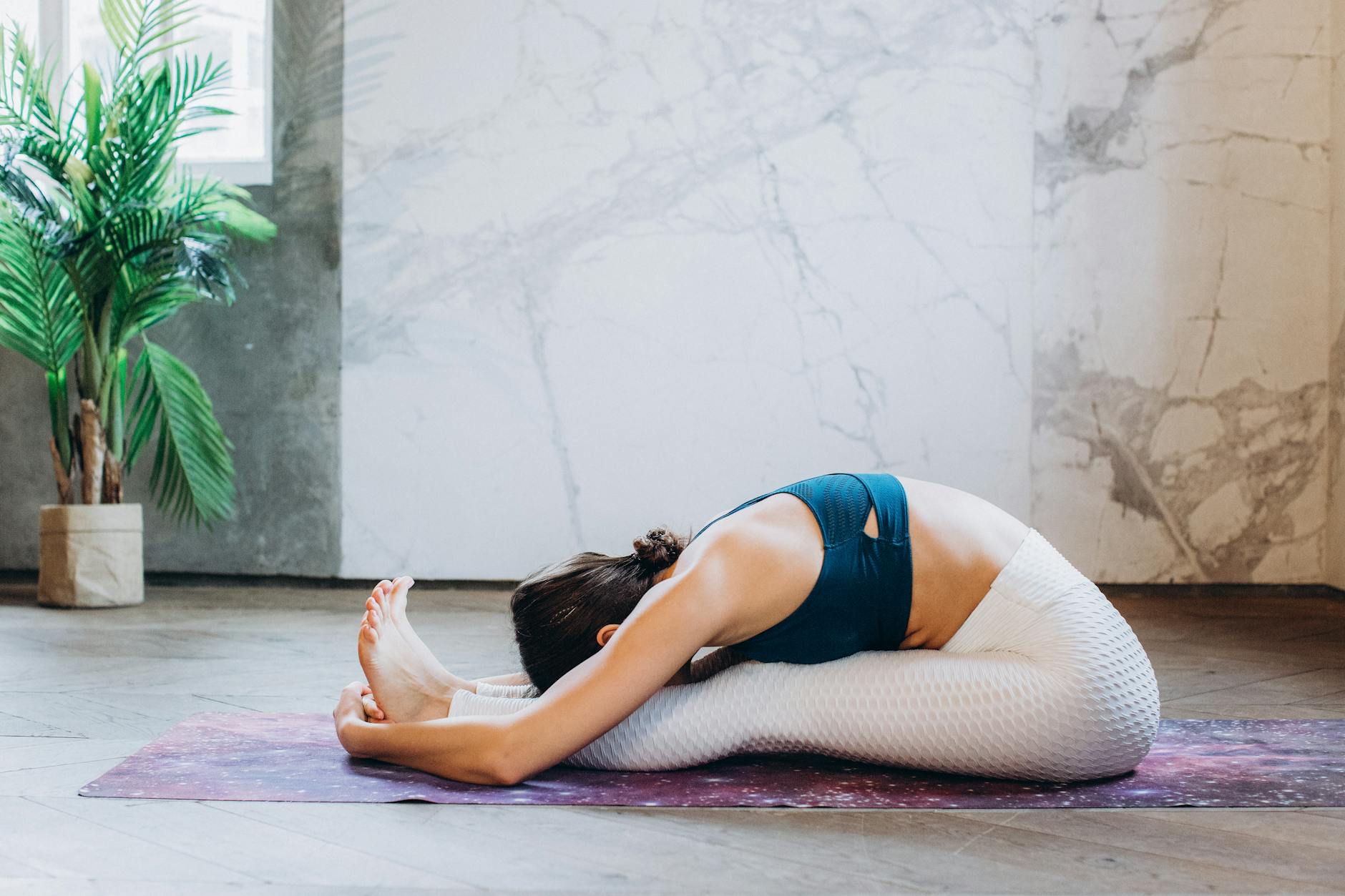
Imagine being able to reach your toes with ease or twist your body comfortably. Yoga poses, like the Seated Forward Fold (Paschimottanasana) pictured above, target different muscle groups, stretching and lengthening them over time. This increased flexibility translates into better posture, reduced muscle tension, and a lower risk of injuries during everyday activities or exercise.
2. Builds strength
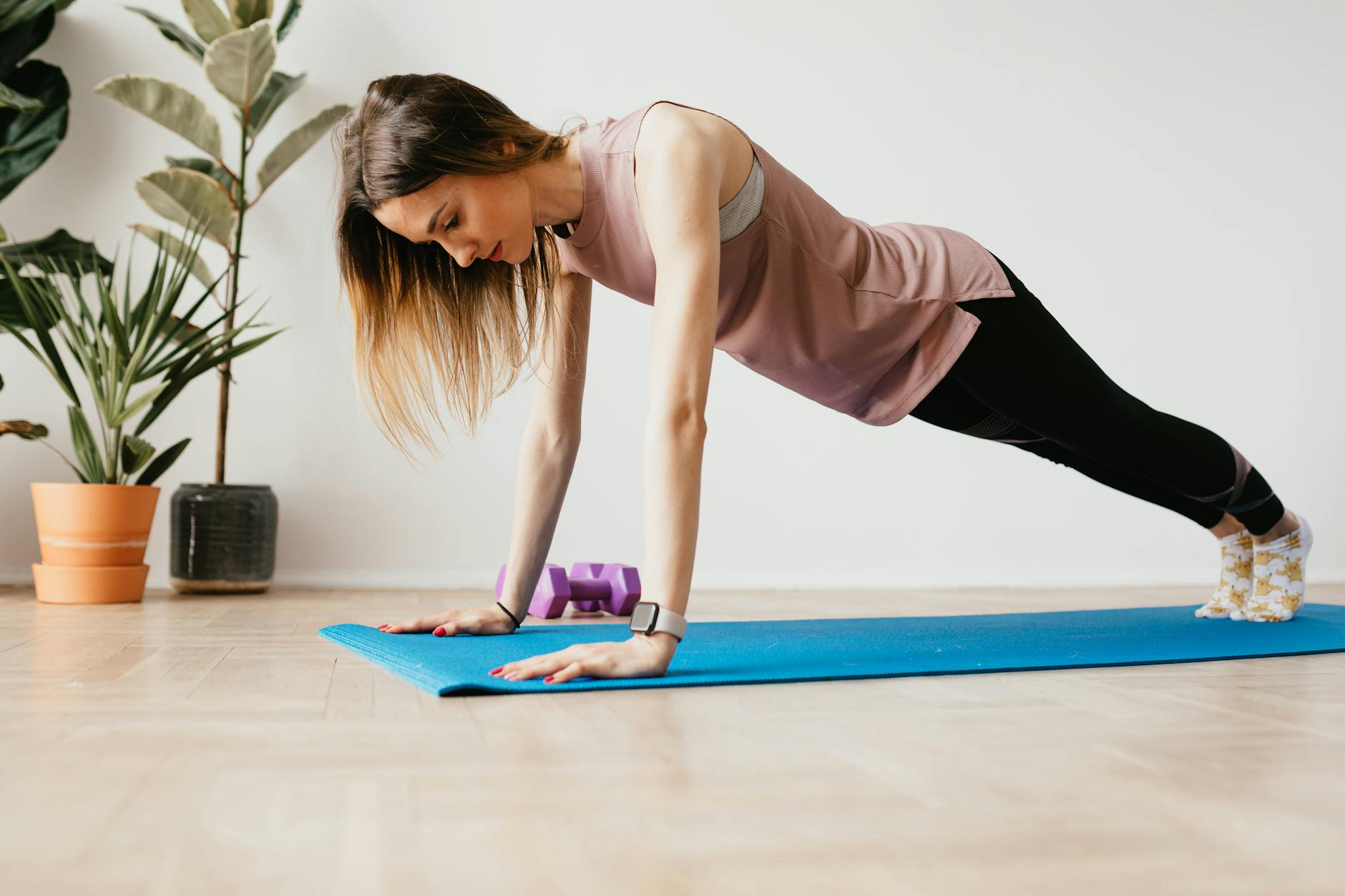
Yoga isn’t just about stretching! Many poses, like Plank (Chaturanga Dandasana) seen here, engage various muscle groups, including your core, back, arms, and legs. Holding these poses for increasing lengths of time builds strength throughout your body. This newfound strength improves your functional fitness for daily activities like carrying groceries or climbing stairs, and can even enhance your performance in other sports.
3. Enhances balance
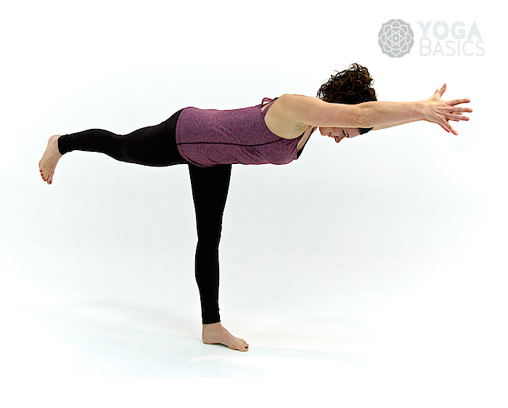
Think about gracefully balancing on one leg. Yoga poses challenge your balance with various standing postures, such as Warrior III (Virabhadrasana III). Regular practice strengthens the muscles that support your joints and improves your nervous system’s ability to sense your body’s position in space. This enhanced balance can significantly reduce the risk of falls, especially in older adults.
Read More: 15 Revolutionary Fitness Trends That Will Change How You Workout
4. Reduces stress and anxiety
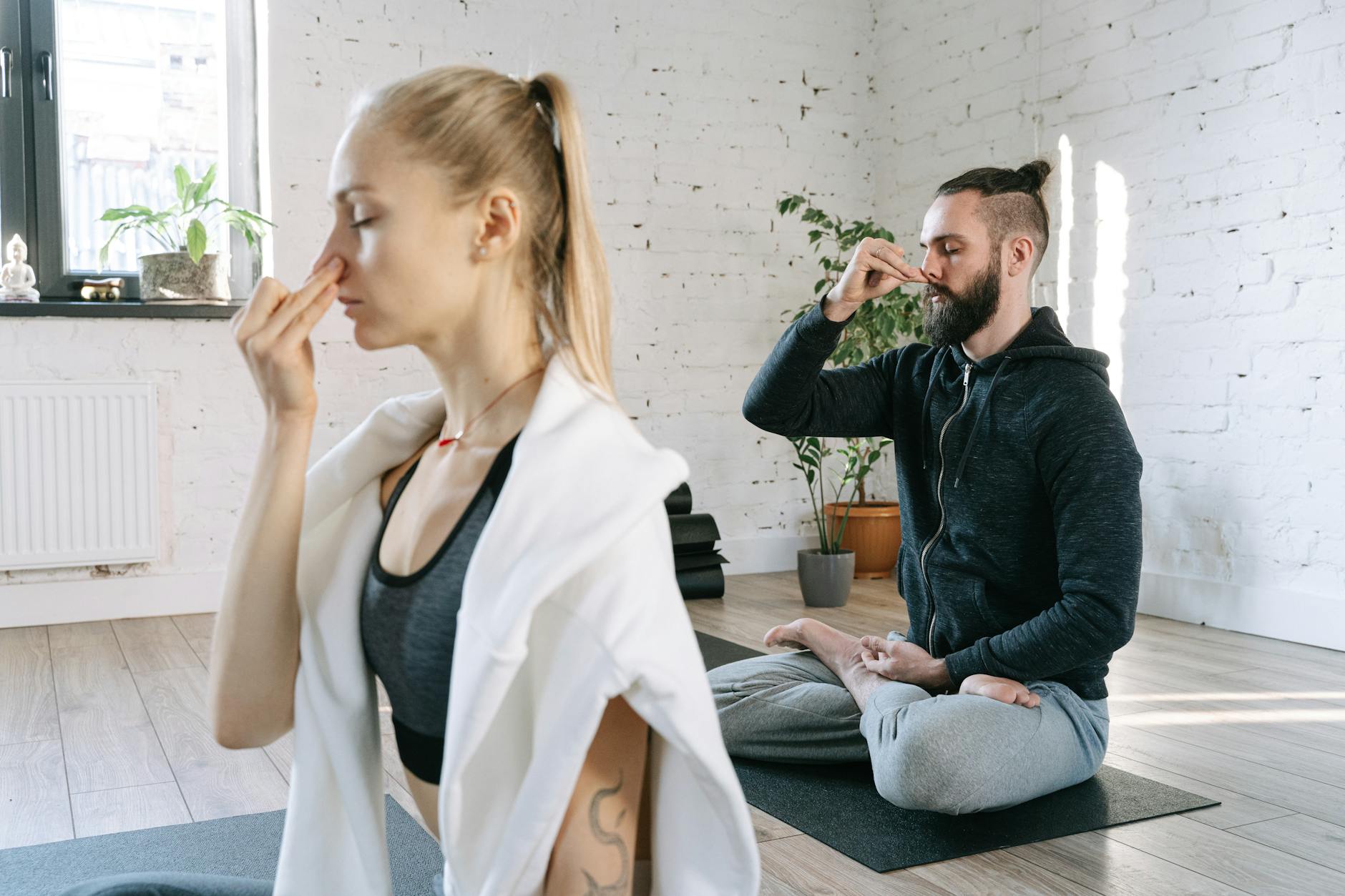
Feeling overwhelmed? Yoga can be your sanctuary. The combination of physical movement, breathwork (pranayama), and meditation in yoga practice calms the nervous system. It decreases stress hormones like cortisol and promotes a sense of relaxation. Imagine yourself in Child’s Pose (Balasana) – a restful position that allows your body to completely unwind. With regular practice, yoga can equip you with tools to manage stress and anxiety in your daily life.
5. Boosts mood
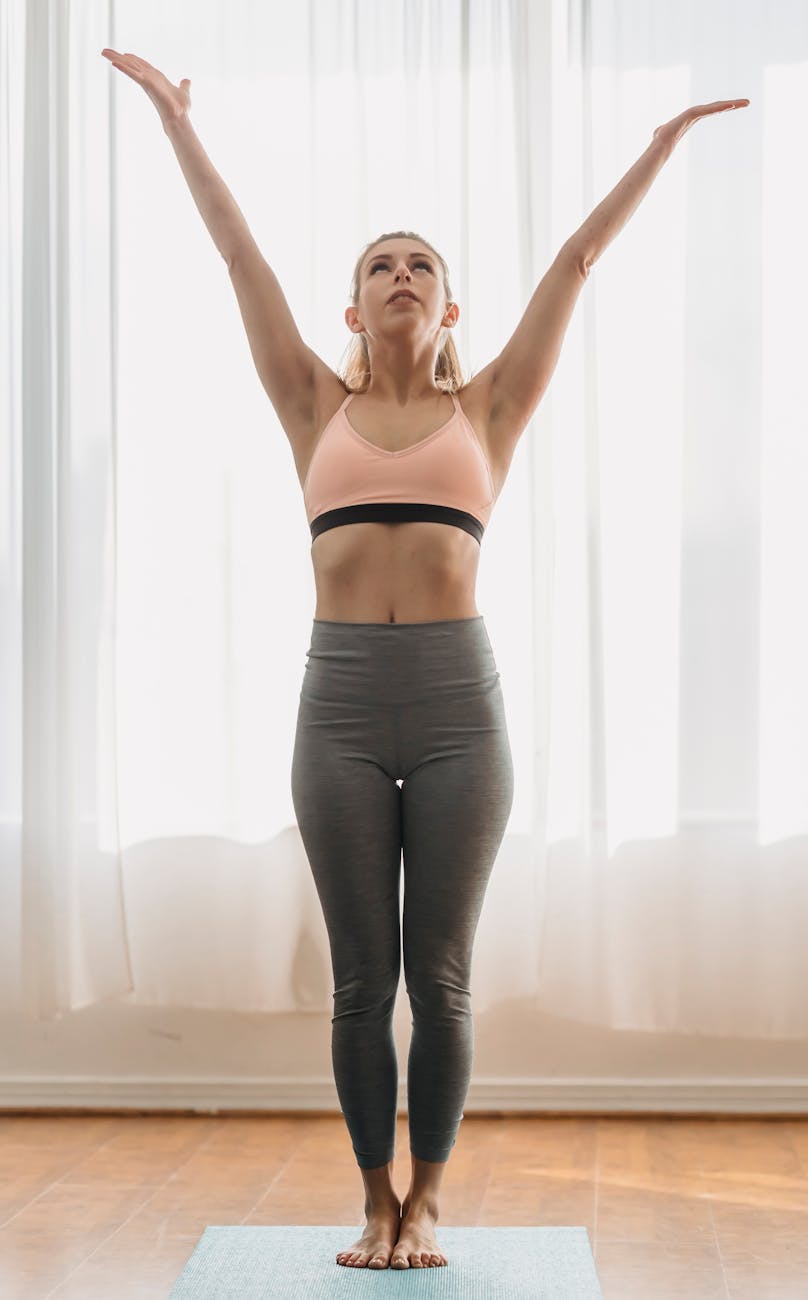
Ever feel down or sluggish? Yoga may be the natural mood-lifter you need. Regular practice has been shown to elevate levels of neurotransmitters like dopamine and serotonin, which are linked to happiness and well-being. Feeling good in your body translates to feeling good in your mind. Yoga can be a powerful tool to combat symptoms of depression and cultivate a more positive outlook.
6. Increases mindfulness
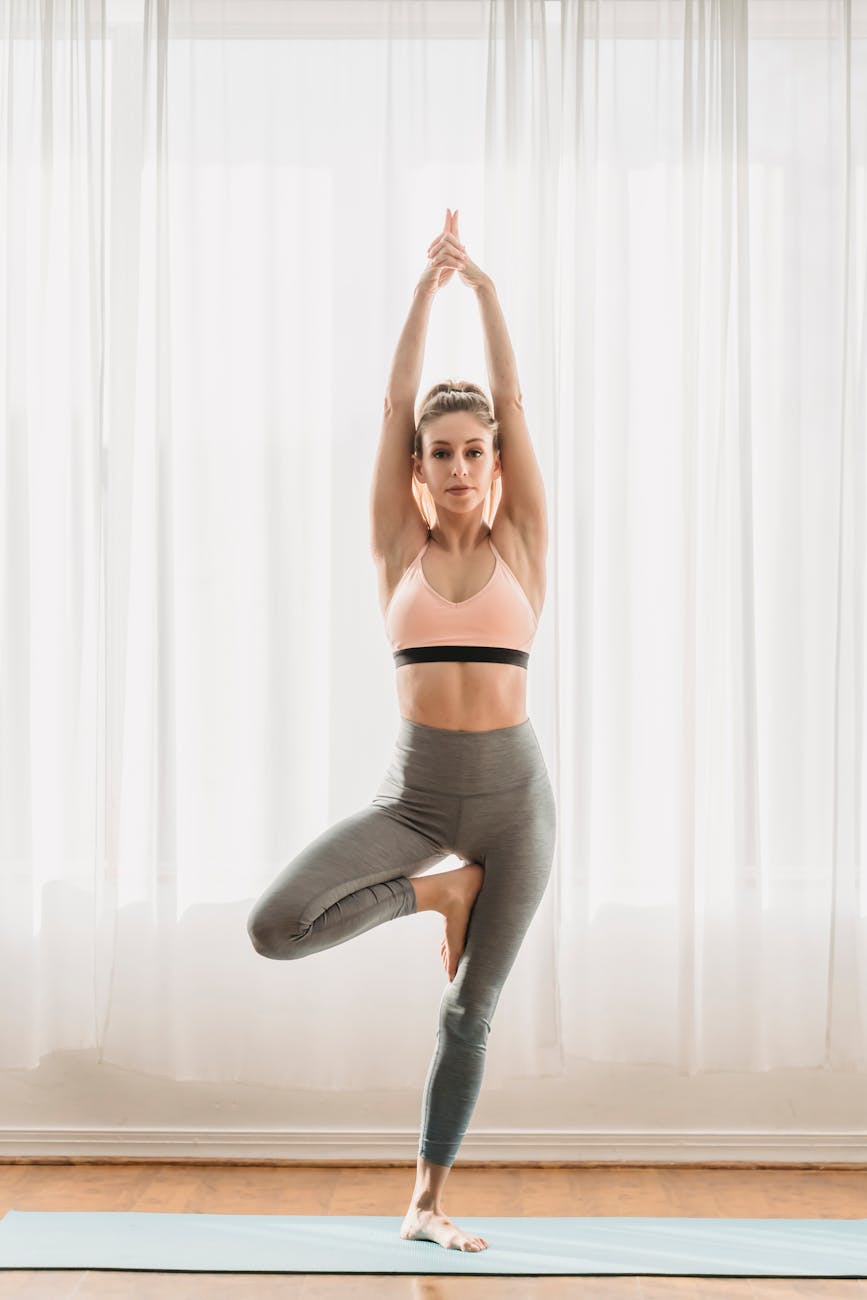
Yoga is more than just physical postures. It emphasizes present-moment awareness and non-judgmental observation of your thoughts and sensations. As you hold a pose, you focus on your breath and how your body feels in that moment. This practice of mindfulness cultivates greater self-understanding and acceptance, allowing you to navigate life’s challenges with more clarity and ease.
Read More: Unforgettable Olympic Moments: 15 Times Athletes Made History
7. Improves sleep
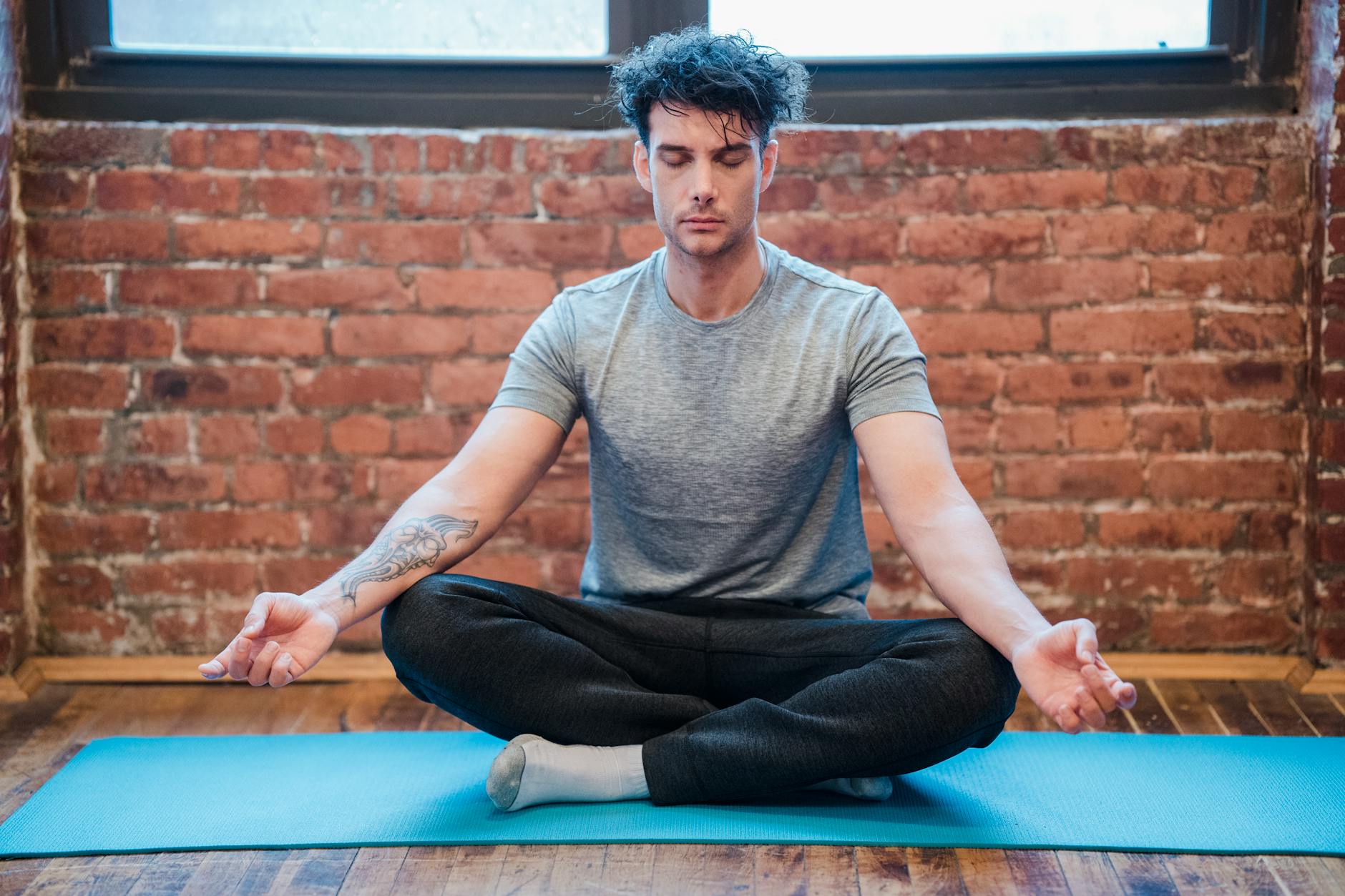
Do you toss and turn at night? Yoga may be the solution to a good night’s rest. By reducing stress, easing tension in the body, and promoting relaxation, yoga sets the stage for better sleep. Consistent practice can improve sleep quality and help you overcome insomnia.
8. Relieves chronic pain
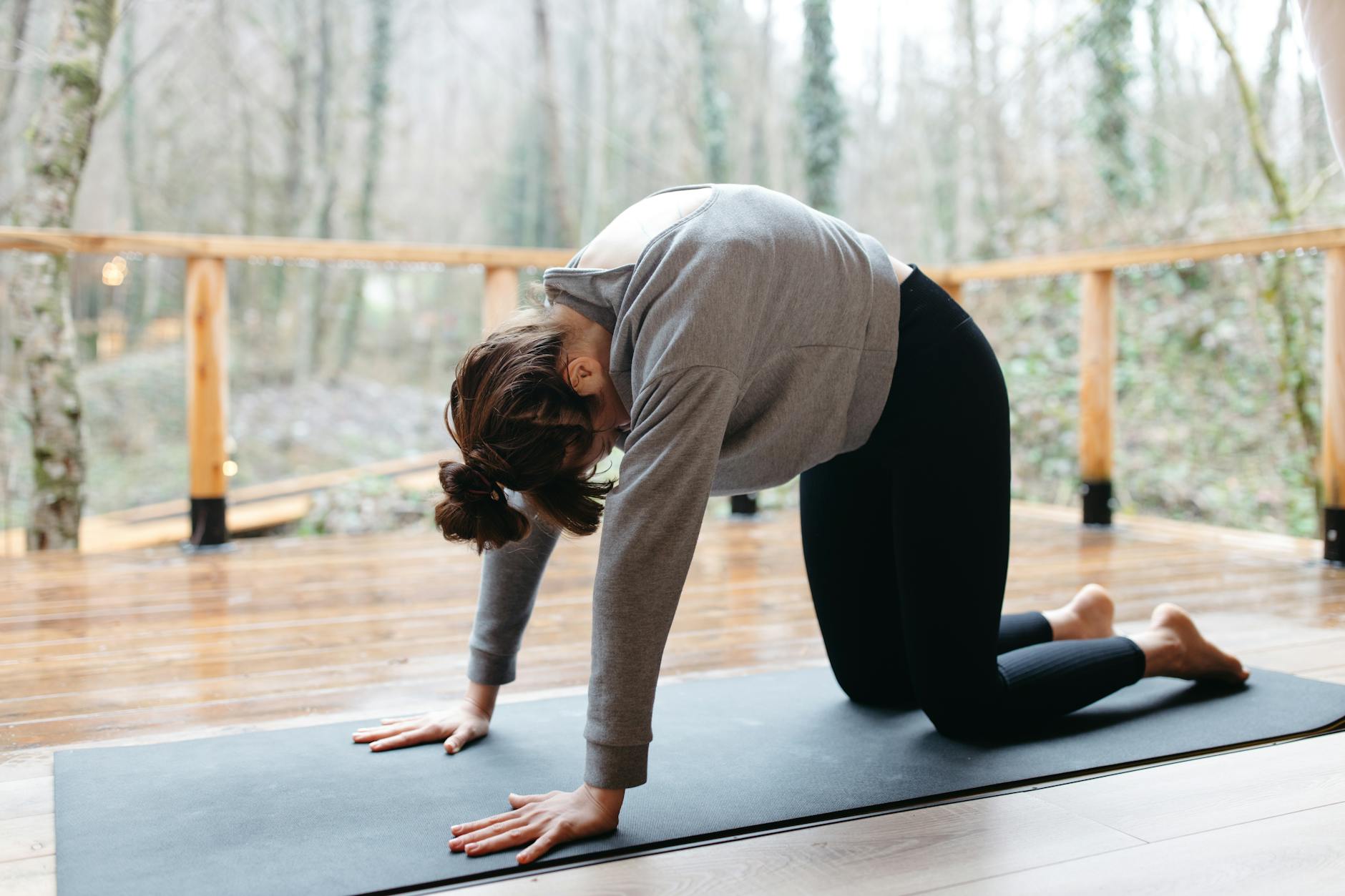
Persistent pain can be debilitating. Studies suggest that yoga, with its gentle movements and focus on alignment, can be an effective tool for managing chronic pain conditions like arthritis, back pain, and fibromyalgia. Yoga reduces inflammation, improves mobility, and trains you in techniques to better cope with pain.
9. Lowers blood pressure
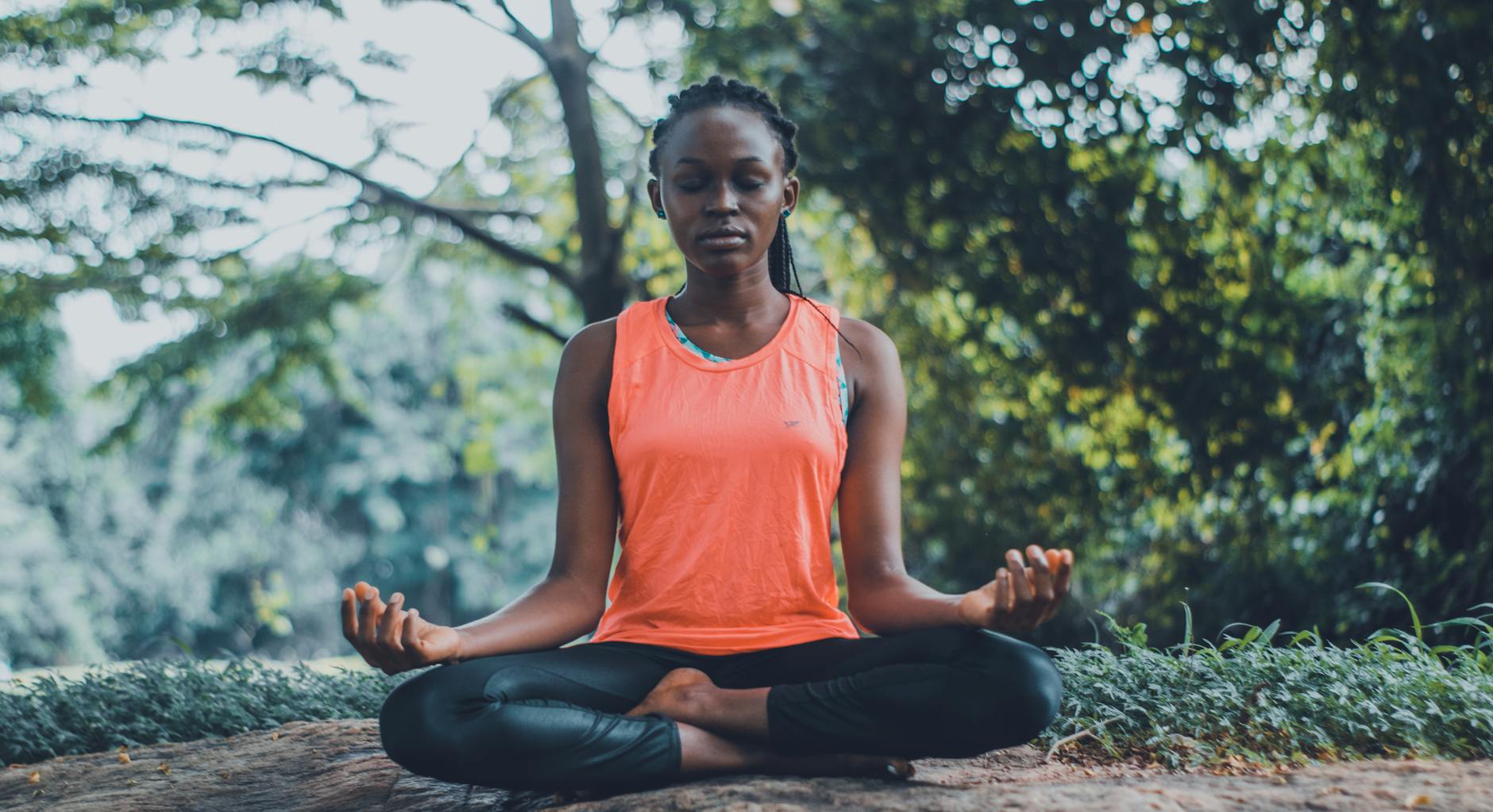
Elevated blood pressure is a major risk factor for heart disease and stroke. Yoga’s relaxation techniques, including deep breathing and meditation, can help regulate blood pressure. It may be especially beneficial for individuals with hypertension when practiced regularly alongside a healthy lifestyle.
10. Supports heart health
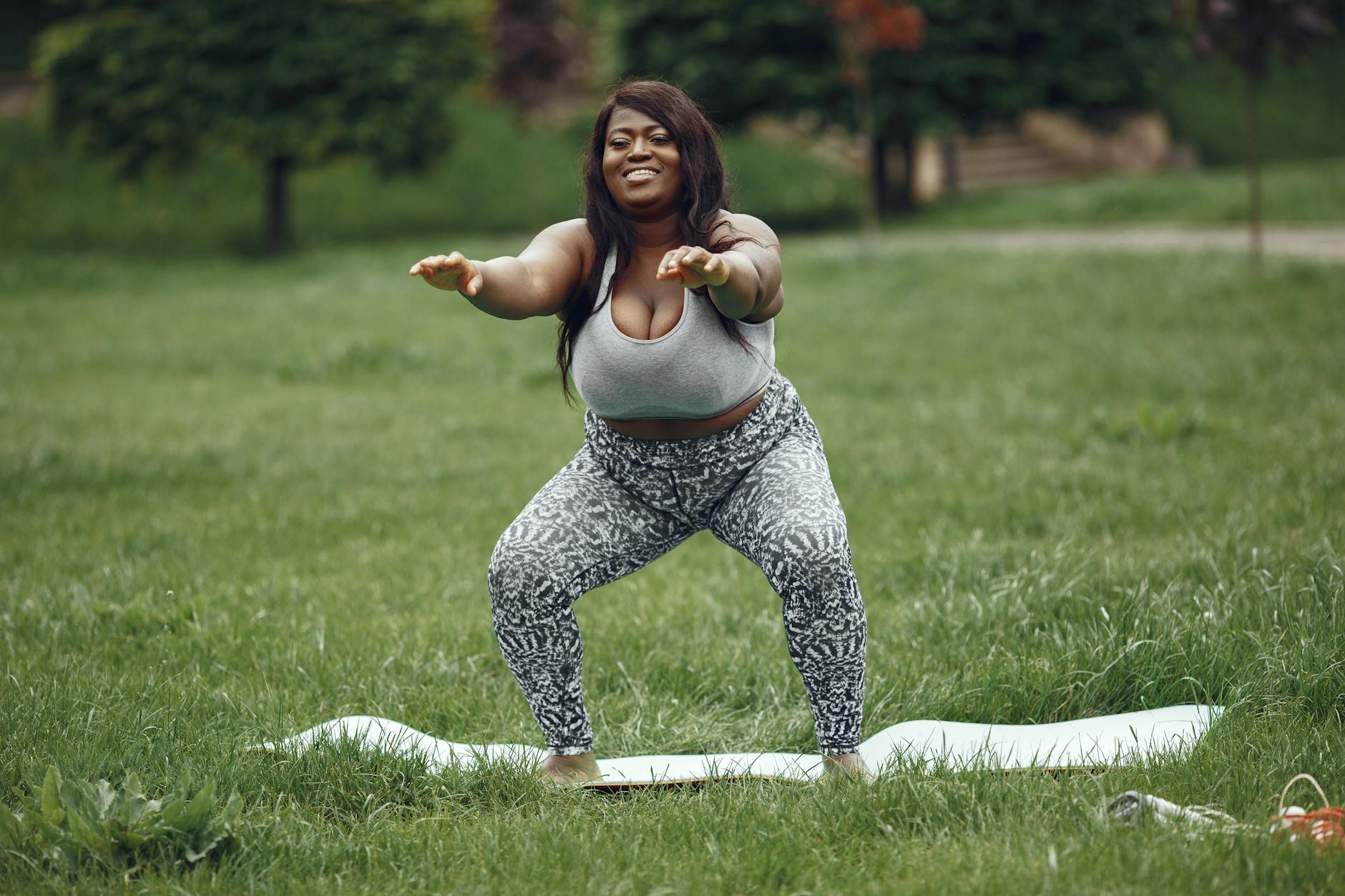
Yoga promotes cardiovascular health in multiple ways. By lowering blood pressure, improving cholesterol levels, and managing stress, yoga reduces several key risk factors for heart disease. It can be a valuable addition to a heart-healthy lifestyle that includes exercise and good nutrition.
Read More: 15 Unbreakable Sports Records That Will Leave You in Awe
11. May help with weight management
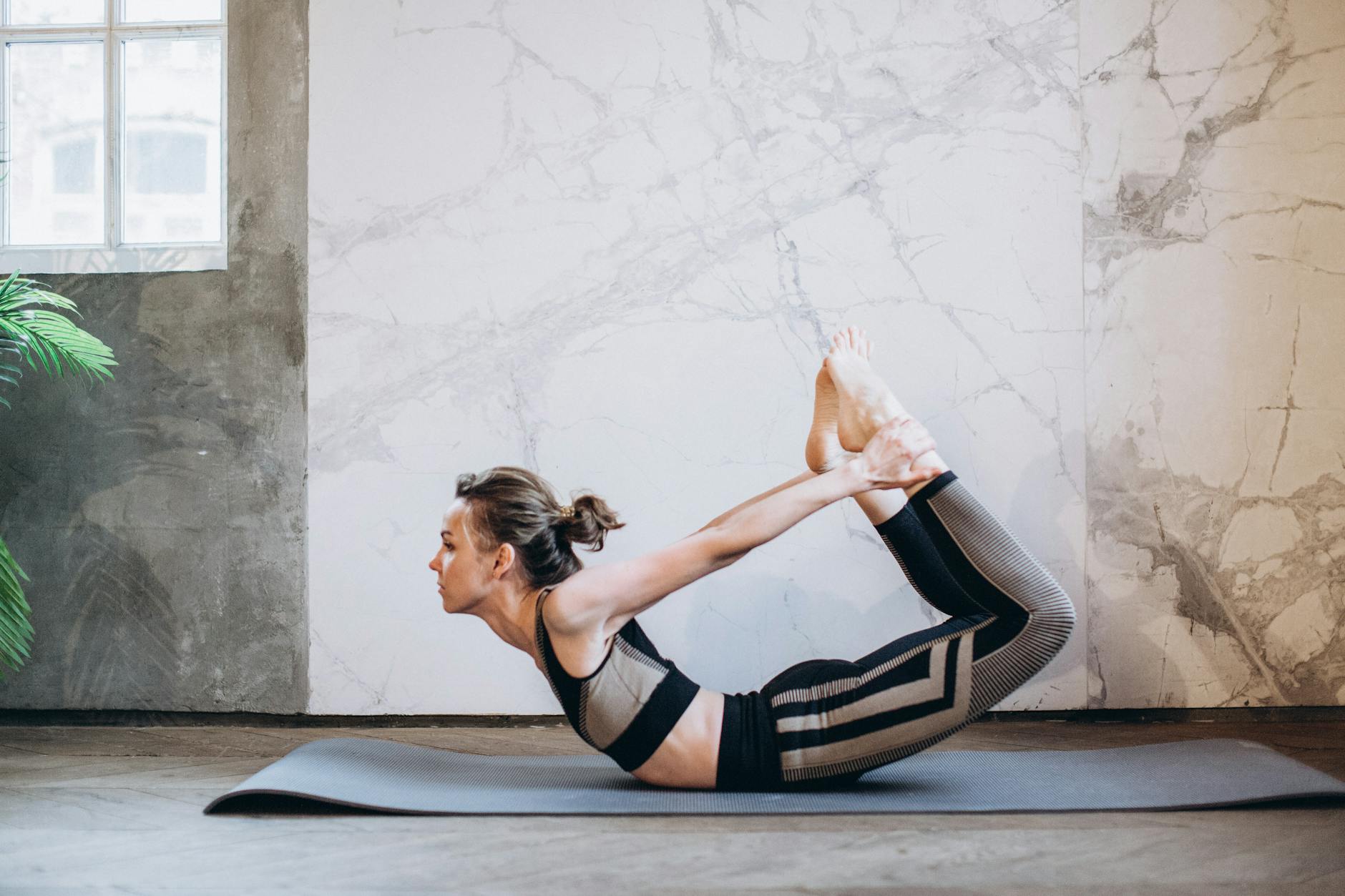
While yoga isn’t specifically designed as a primary weight-loss method, it can support your efforts towards a healthier weight. The practice encourages mindful eating and increases body awareness, potentially leading to healthier food choices. Additionally, the stress reduction and mood enhancement benefits of yoga can help curb emotional eating.
12. Improves breathing
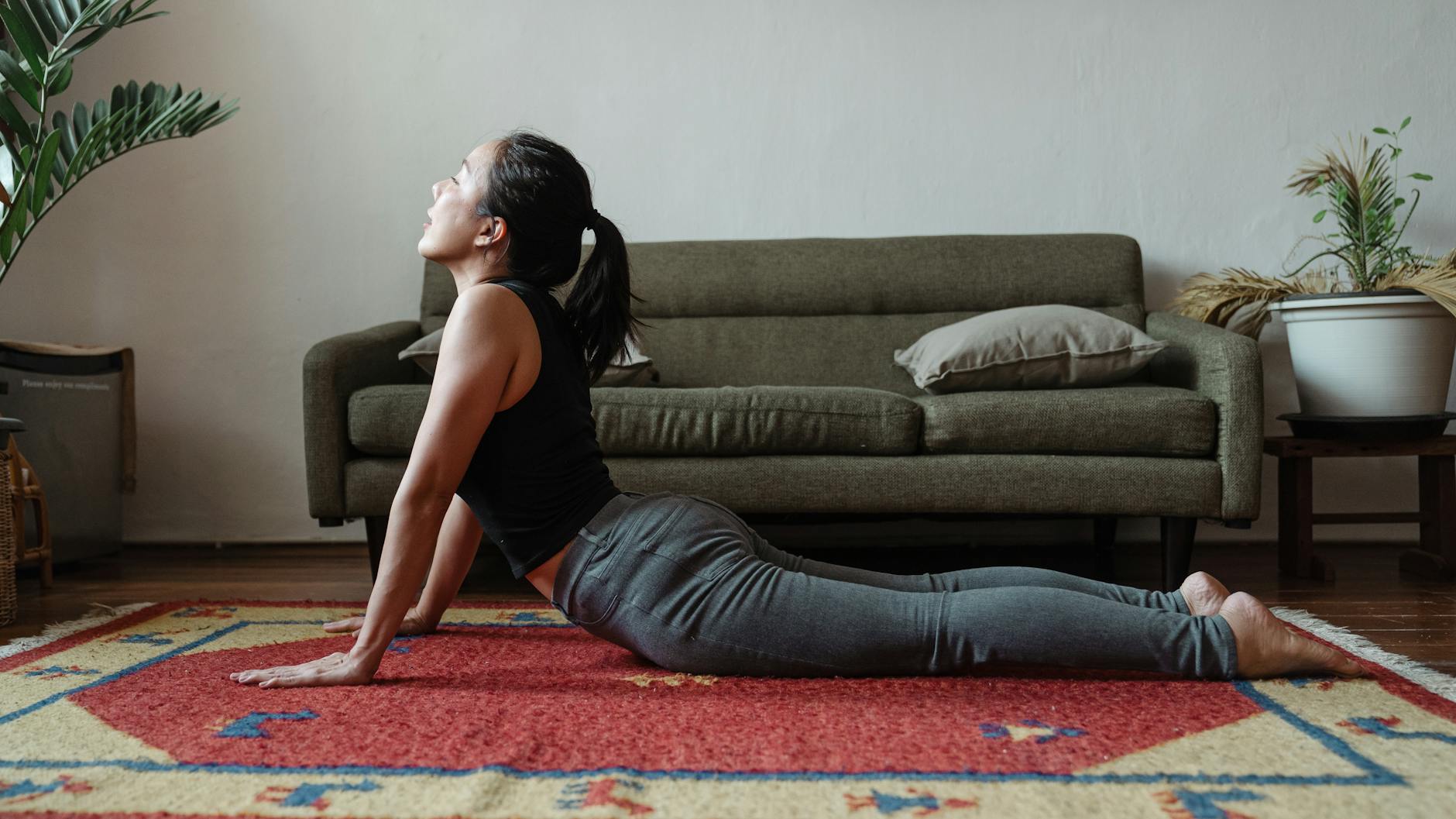
Yoga includes specific breathing exercises called pranayama, designed to increase control over your breath. These techniques enhance lung capacity, optimize oxygen flow, and benefit respiratory health. People with conditions like asthma or chronic obstructive pulmonary disease (COPD) may find yoga helpful in managing their symptoms.
13. Promotes self-compassion
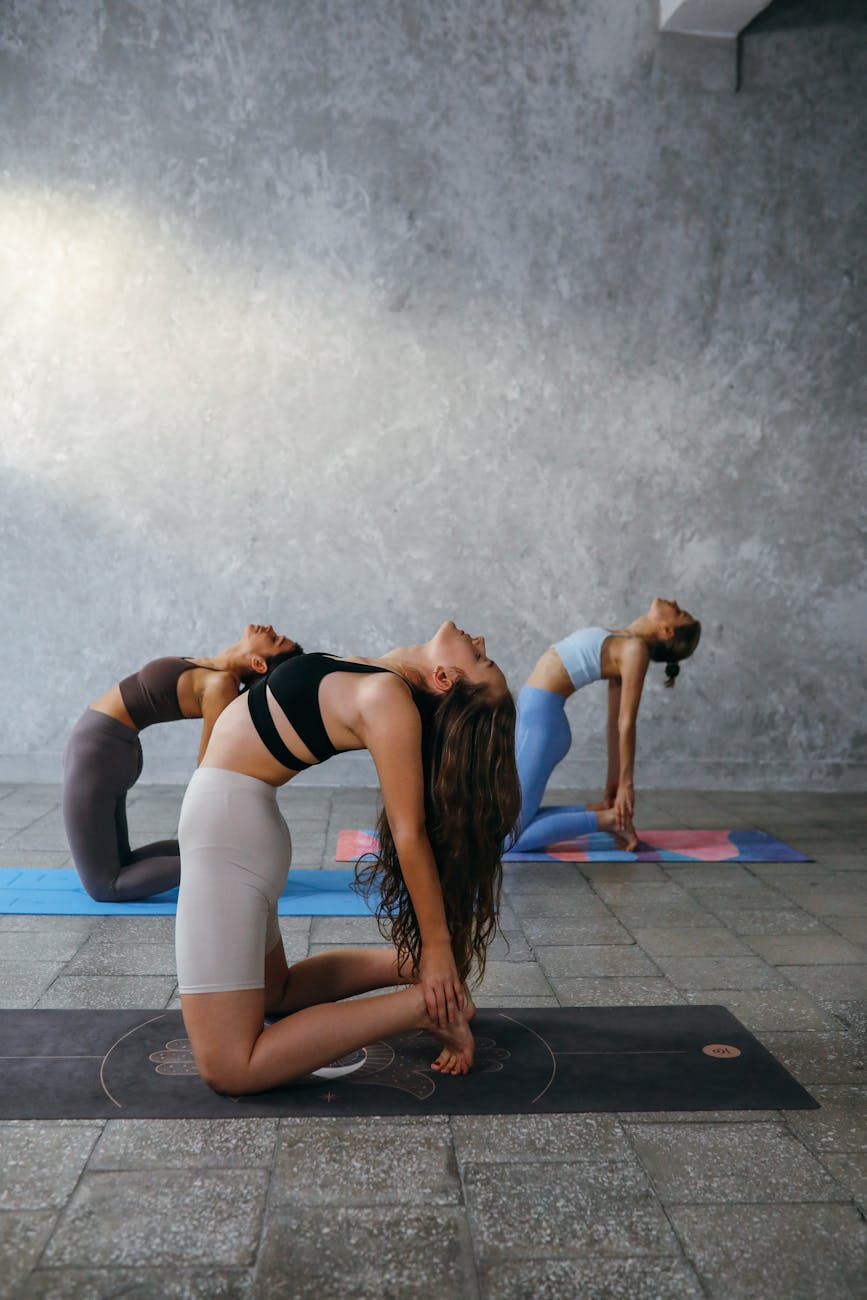
In a world that often pushes us to be critical of ourselves, yoga cultivates a non-judgmental and compassionate attitude. It teaches you to accept limitations, meet challenges with kindness, and celebrate your progress. Self-compassion is a powerful tool for emotional well-being and resilience.
Read More: Top 15 Extreme Sports Explained: Discover the Wildest Thrills and Athletes
14. Boosts energy levels
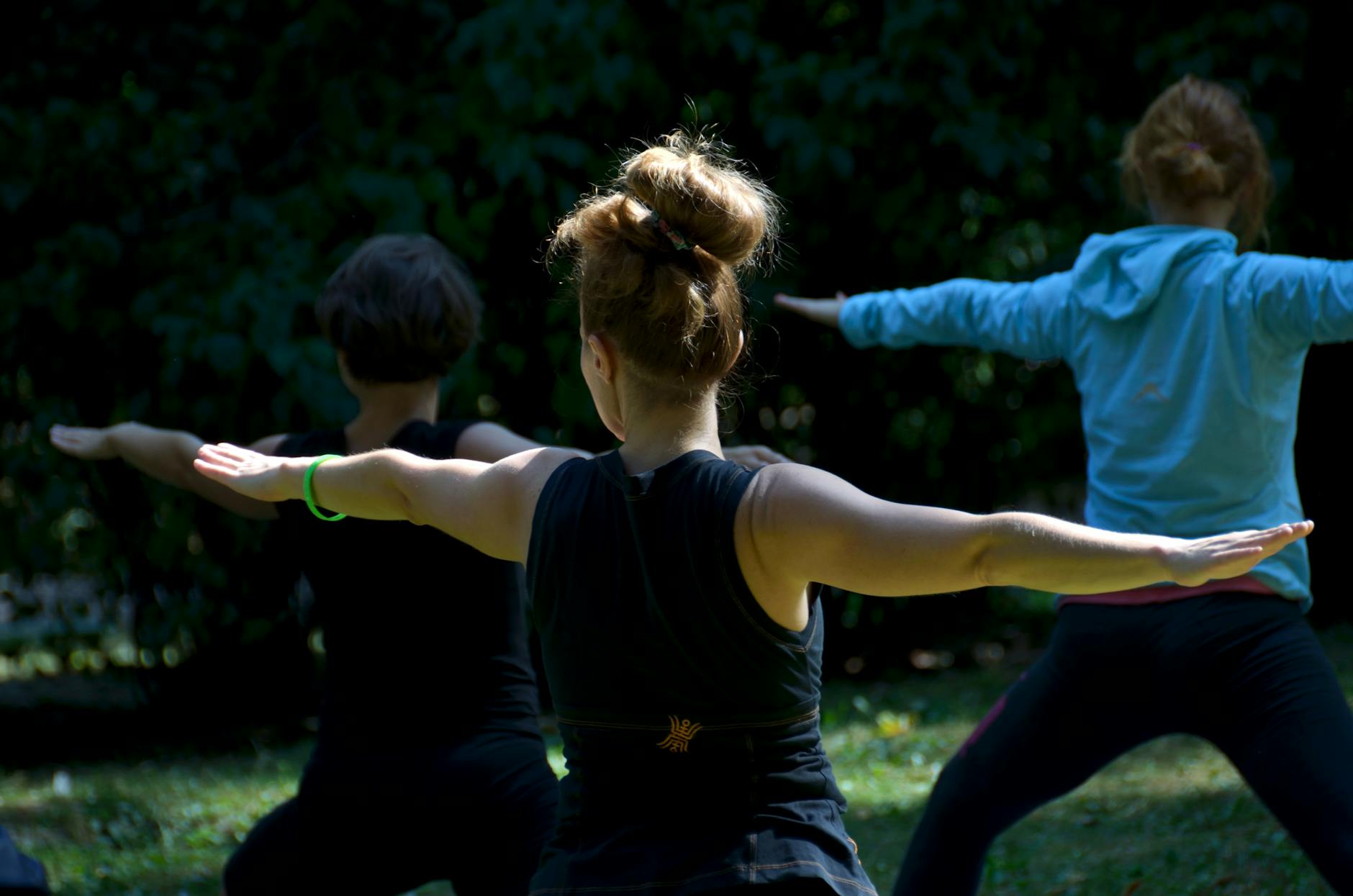
Feeling constantly drained? Yoga can be surprisingly invigorating. Regular practice improves circulation, reduces fatigue, and increases your overall vitality and stamina. This boost in energy can translate to feeling more productive and engaged throughout your day.
15. Builds a sense of community
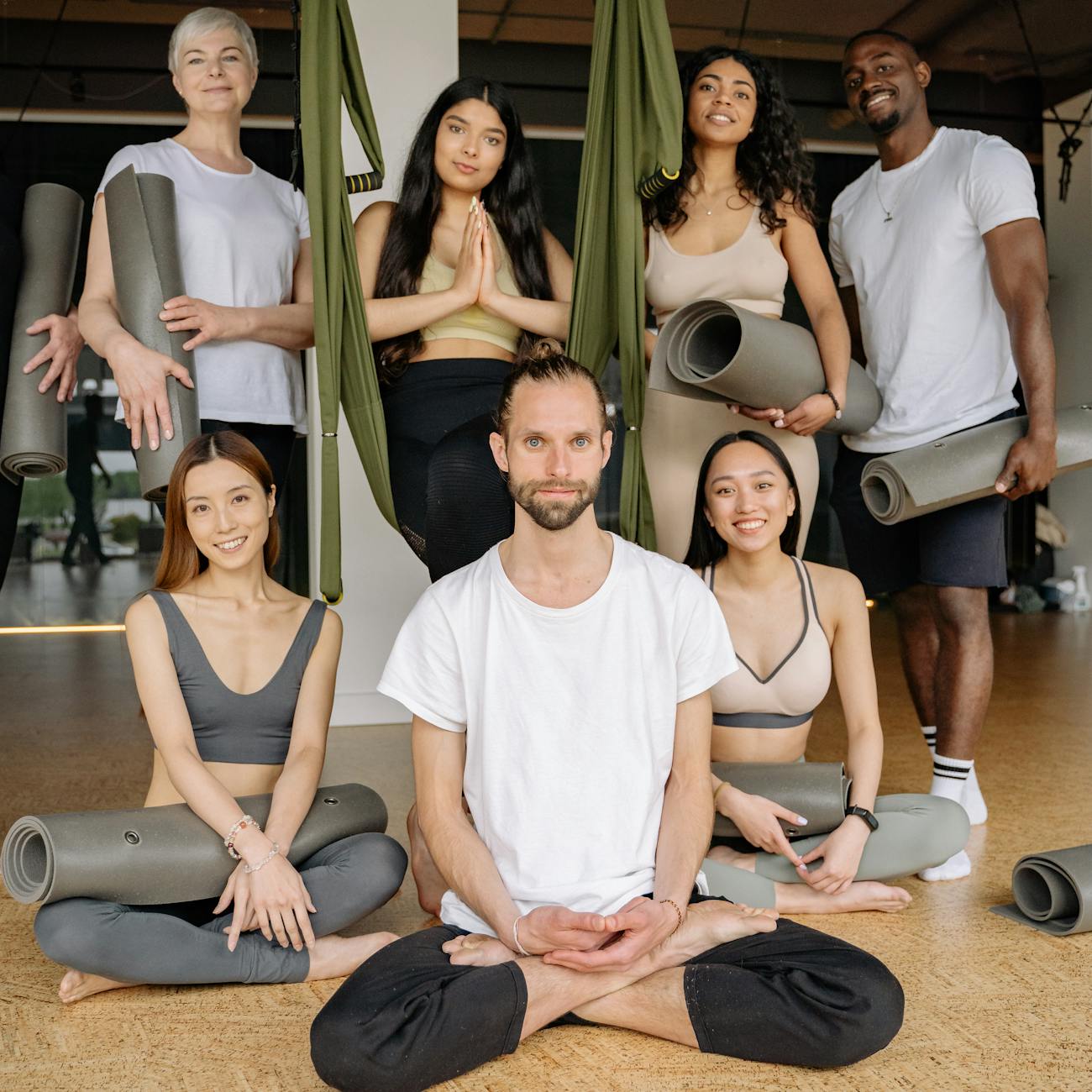
Yoga offers the opportunity to connect with like-minded individuals. Taking yoga classes or joining a yoga group can create a supportive network focused on health and well-being. This sense of community can be a source of motivation and inspire you on your yoga journey.
Conclusion:
The benefits of yoga extend far beyond the physical. It’s a transformative practice that fosters flexibility, strength, balance, mental clarity, inner peace, and even a sense of belonging. Whether you’re new to yoga or a seasoned practitioner, the rewards of a consistent practice are undeniable.
15 FAQs( Frequently Asked Questions):
-
I’m not flexible at all. Can I still do yoga?
Absolutely! Flexibility is not a prerequisite for starting yoga. Yoga is adaptable to all levels and body types. Poses can be modified to suit your ability and flexibility will naturally improve over time.
-
Is yoga a good workout for building muscle?
While yoga is not primarily a bodybuilding practice, it can build lean muscle mass. Many yoga poses engage your core, arms, legs, and back. Holding these poses works your muscles, leading to increased strength and definition.
-
Can yoga help me lose weight?
Yoga can indirectly support weight loss. It fosters mindful eating, promotes stress reduction (which can reduce cortisol-related weight gain), and can be a form of physical activity. While not a quick fix, it can be part of a holistic weight management approach.
-
How often should I practice yoga to see benefits?
Consistency is key! Aim for at least 3-4 sessions per week. Even short practices of 15-20 minutes can make a difference. The more you practice, the more pronounced the benefits will be.
-
Is yoga safe for people with injuries?
It’s always advisable to consult a doctor before starting a new exercise regime, especially if you have an injury. Inform your yoga instructor about any limitations, and they can offer modifications or alternate poses to keep you safe.
-
Can yoga help with anxiety?
Yes! Yoga’s combination of gentle exercise, focused breathing, and meditation can profoundly reduce anxiety symptoms. Regular practice teaches you relaxation techniques to manage stress and cultivate a sense of calm.
-
I can’t sit still for meditation. Is yoga still for me?
Definitely. While meditation is a component of traditional yoga, it’s not the only focus. The physical poses and breathing exercises also offer numerous benefits, and with time, you may find yourself more comfortable with a meditative practice.
-
Will yoga improve my sleep?
Yes! By reducing stress, easing tension in the body, and promoting relaxation, yoga sets the stage for better sleep. Consistent practice can improve sleep quality and help you overcome insomnia.
-
Is yoga suitable for older adults?
Absolutely! Yoga can be adapted for all ages and ability levels. It’s particularly beneficial for older adults as it improves strength, balance, and flexibility, reducing the risk of falls and injuries.
-
Can yoga help manage chronic pain?
Yes, growing research supports the use of yoga for chronic pain conditions like arthritis, fibromyalgia, and lower back pain. By reducing inflammation, improving mobility, and providing relaxation techniques, yoga can help manage pain symptoms.
-
Do I need any special equipment to do yoga?
A yoga mat is helpful to provide cushioning and prevent slipping. Other optional props include blocks, straps, or a yoga bolster, particularly if you’re starting and need modifications.
-
What type of yoga is best for me?
There are many styles of yoga. If you’re new, try a beginner’s class, Hatha yoga, or restorative yoga. Discuss your goals and any health concerns with a yoga instructor for recommendations.
-
Can I do yoga at home?
Yes! Online resources, yoga DVDs, and streaming services offer yoga classes. However, if you’re a beginner, in-person classes with a qualified instructor are recommended for learning proper form and alignment.
-
How long will it take to see results from yoga?
You may feel some benefits immediately after a yoga session, such as increased flexibility or reduced stress. With regular practice, you’ll start noticing more significant changes within a few weeks or months.
-
Is yoga a religion?
Yoga has roots in ancient Indian philosophy and spirituality but does not have to be practiced as a religion. It can be a secular practice focused on physical fitness, stress reduction, and personal growth.




